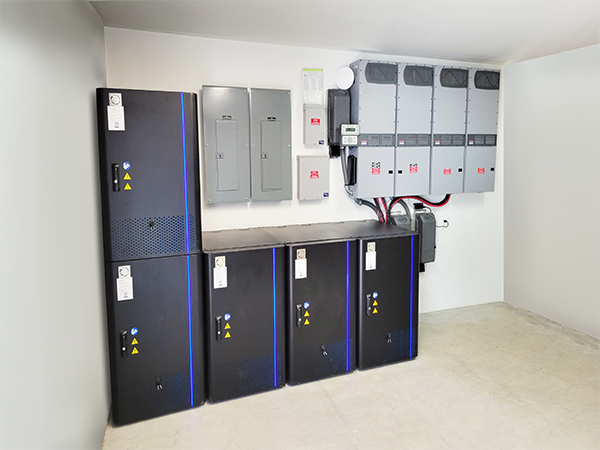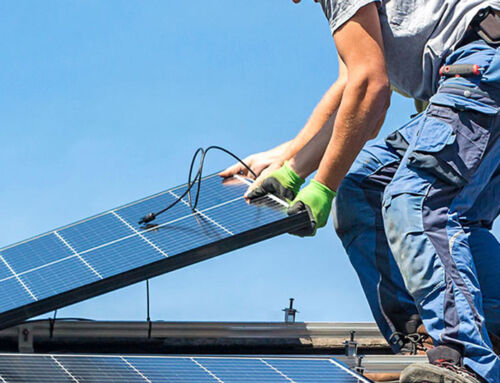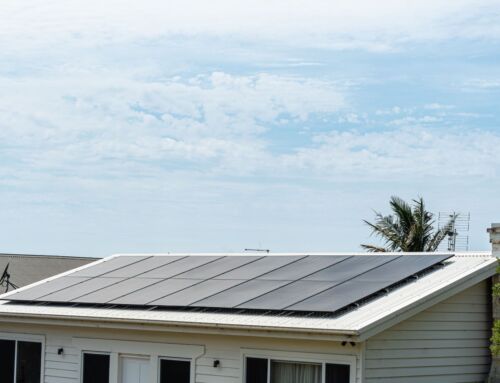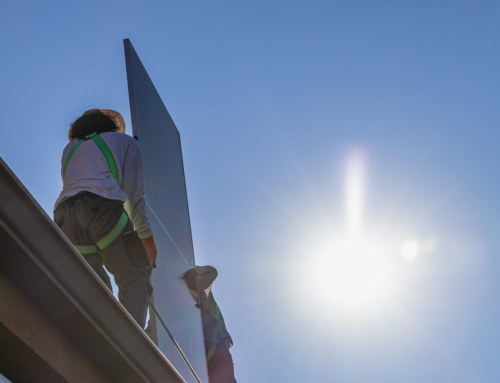What Are the Different Types of Solar Batteries?
 Adding solar battery storage to your home solar system is a smart decision with a lot of advantages. Solar batteries let you keep your lights on during a power outage and they can also help you avoid demand response and time-of-use charges from your utility.
Adding solar battery storage to your home solar system is a smart decision with a lot of advantages. Solar batteries let you keep your lights on during a power outage and they can also help you avoid demand response and time-of-use charges from your utility.
Before installing a solar battery, it’s important to compare a variety of solar battery systems so that you can choose the best solar battery for your home. We’ve broken down four of the most popular types of solar battery backup systems to help you find the right fit for your needs.
Lead Acid Solar Batteries
Lead acid batteries are a time-tested technology that solar companies have been installing for years. They are highly dependable and often the default choice for off-grid solar battery storage. However, lead acid solar batteries have plenty of downsides and newer technologies are quickly surpassing them in popularity.
Lead Acid Battery Pros
- Lower cost than other types of solar batteries
- Highly dependable, proven technology
- Can be easily recycled
Lead Acid Battery Cons
- Bulky and take up a lot of space
- Need to oversize battery bank due to low depth of discharge (they should only be discharged max 70%)
- Many emit gasses and need to be installed with ventilation
- Most need minor maintenance like adding water
Lithium Ion Solar Batteries
Lithium ion batteries are a newer player on the solar battery storage scene, but they are quickly becoming the standard for residential solar energy storage. Lithium ion batteries are commonly used in electric vehicles (EV) and the EV industry is driving their advancement. Many solar storage products utilize lithium ion batteries, including the ever-popular Tesla Powerwall.
Lithium Ion Battery Pros
- Long lifespan and warranty
- Require little to no maintenance
- More power from fewer batteries
- High depth of discharge (more of the energy stored can be used)
Lithium Ion Battery Cons
- More expensive than other battery options
Flow Solar Batteries
Flow batteries are an emerging technology in the solar storage industry. They contain a water-based solution of zinc-bromide, which flows between two chambers within the battery, giving them their name. There are only a few companies manufacturing residential flow solar batteries right now, the most prominent being Redflow, which produces the ZCell flow solar battery.
Flow Battery Pros
- 100% depth of discharge, which means 100% of the energy stored can be used
- Do not need to be kept at a minimum charge level
- Naturally fire resistant
- Can tolerate extreme heat
Flow Battery Cons
- More expensive than other types of batteries
- Need to be regularly discharged 100% (can be programmed to do this automatically)
- Lower storage capacity than other types of batteries
Nickel Cadmium Solar Batteries
Nickel cadmium batteries were not originally designed for solar energy storage and are not common in home solar storage. However some solar battery manufacturers are starting to experiment with this technology.
Nickel Cadmium Battery Pros
- Highly durable
- Can withstand extreme temperatures
- Low maintenance
Nickel Cadmium Battery Cons
- Cadmium is toxic and banned in some countries
- Difficult to dispose of dead batteries
- Poor charging efficiency
- Prone to the memory affect, which reduces their ability to hold a charge
Find the Right Solar Storage Solution for Your Home
When it comes to choosing the best battery for solar power storage, your own personal needs and preferences are the most important factor. Do you want to use your battery for backup power during an outage, or are you mainly interested in offsetting demand response charges? What kind of appliances do you want your battery system to power, and for how long? These are the kinds of questions we ask our customers to determine which type of battery makes the most sense for their homes.
SouthFace Solar & Electric is a local Arizona solar installation company with more than 35 years of combined experience. We use our knowledge and experience to make solar energy work for you!





